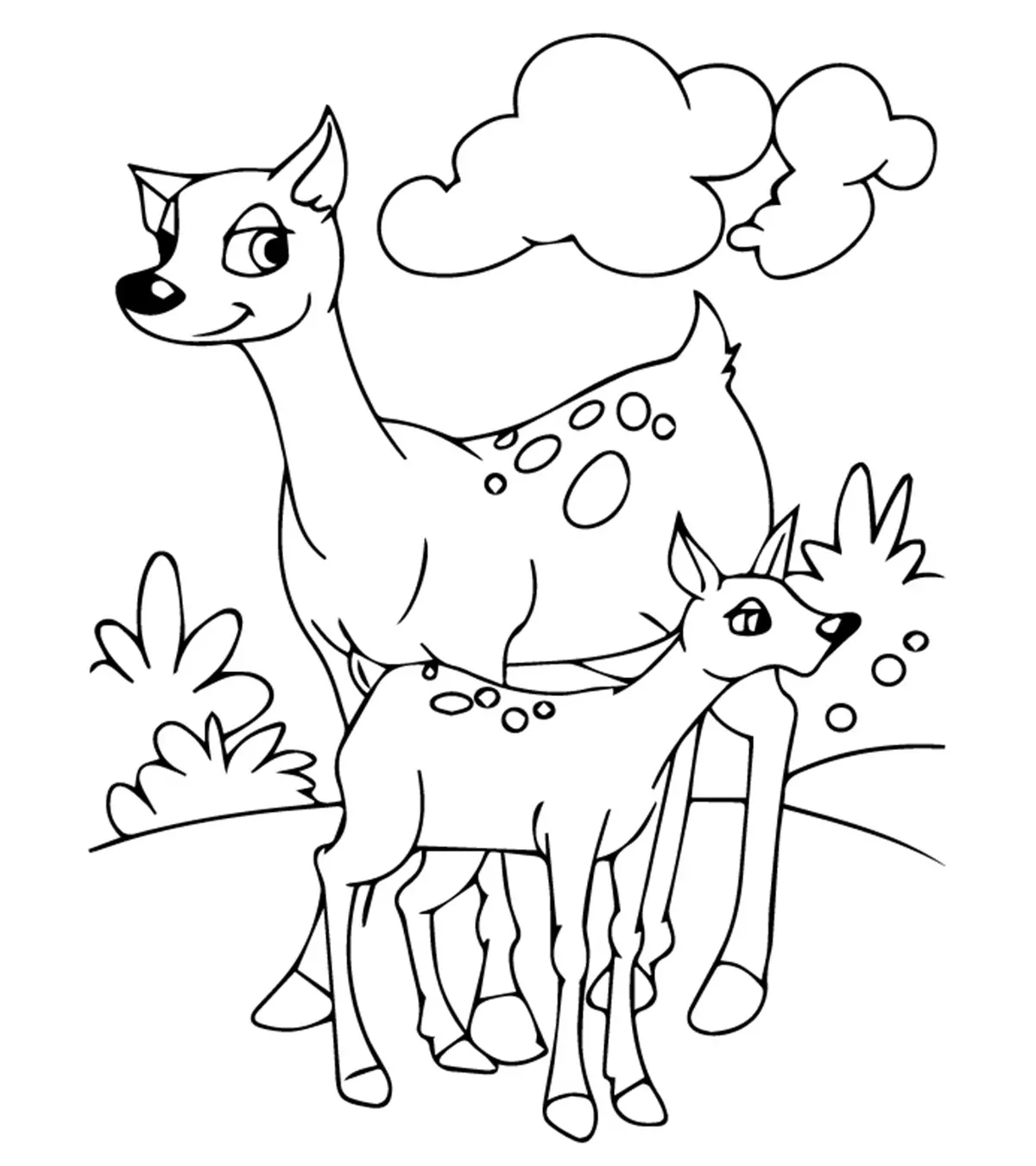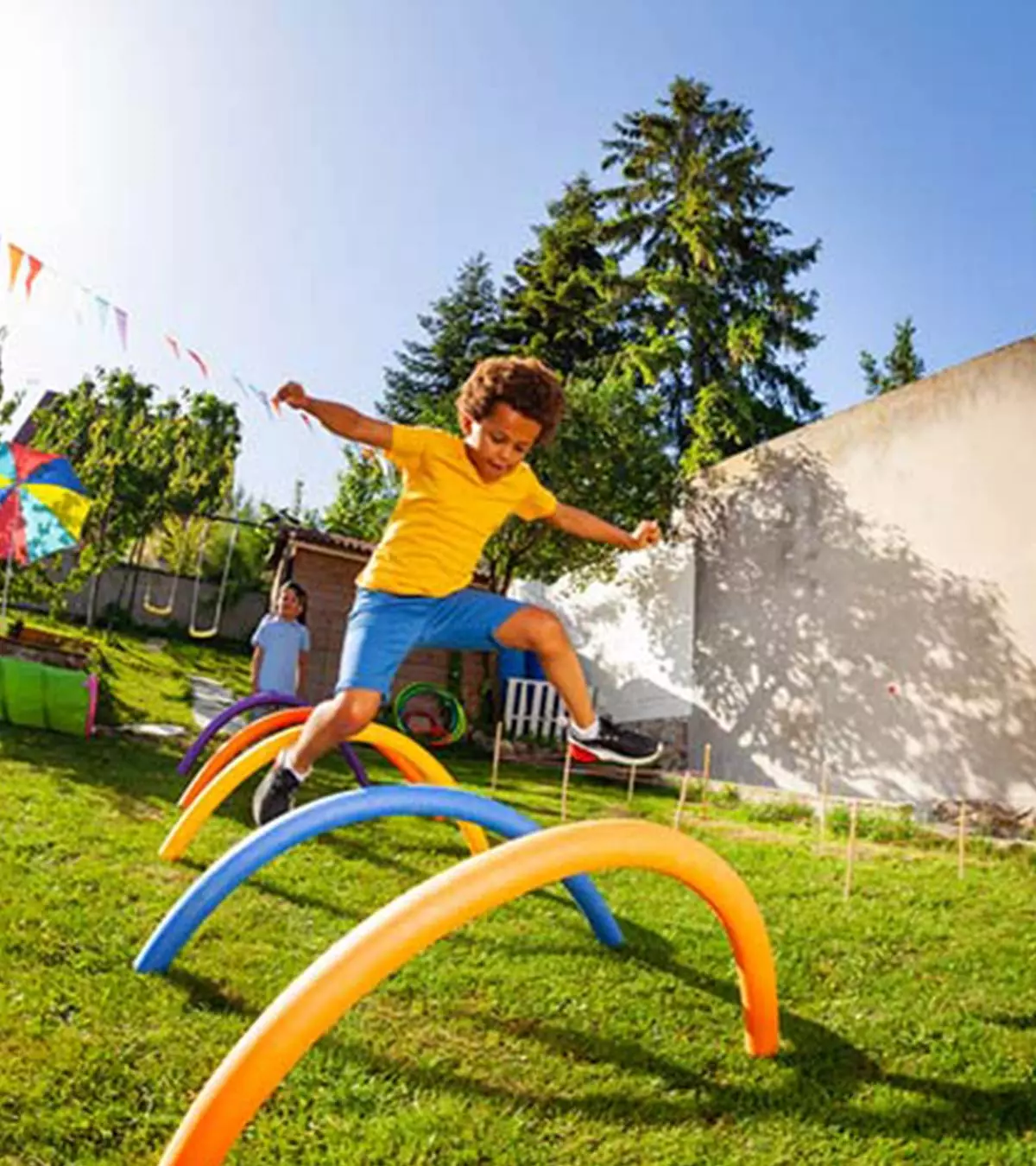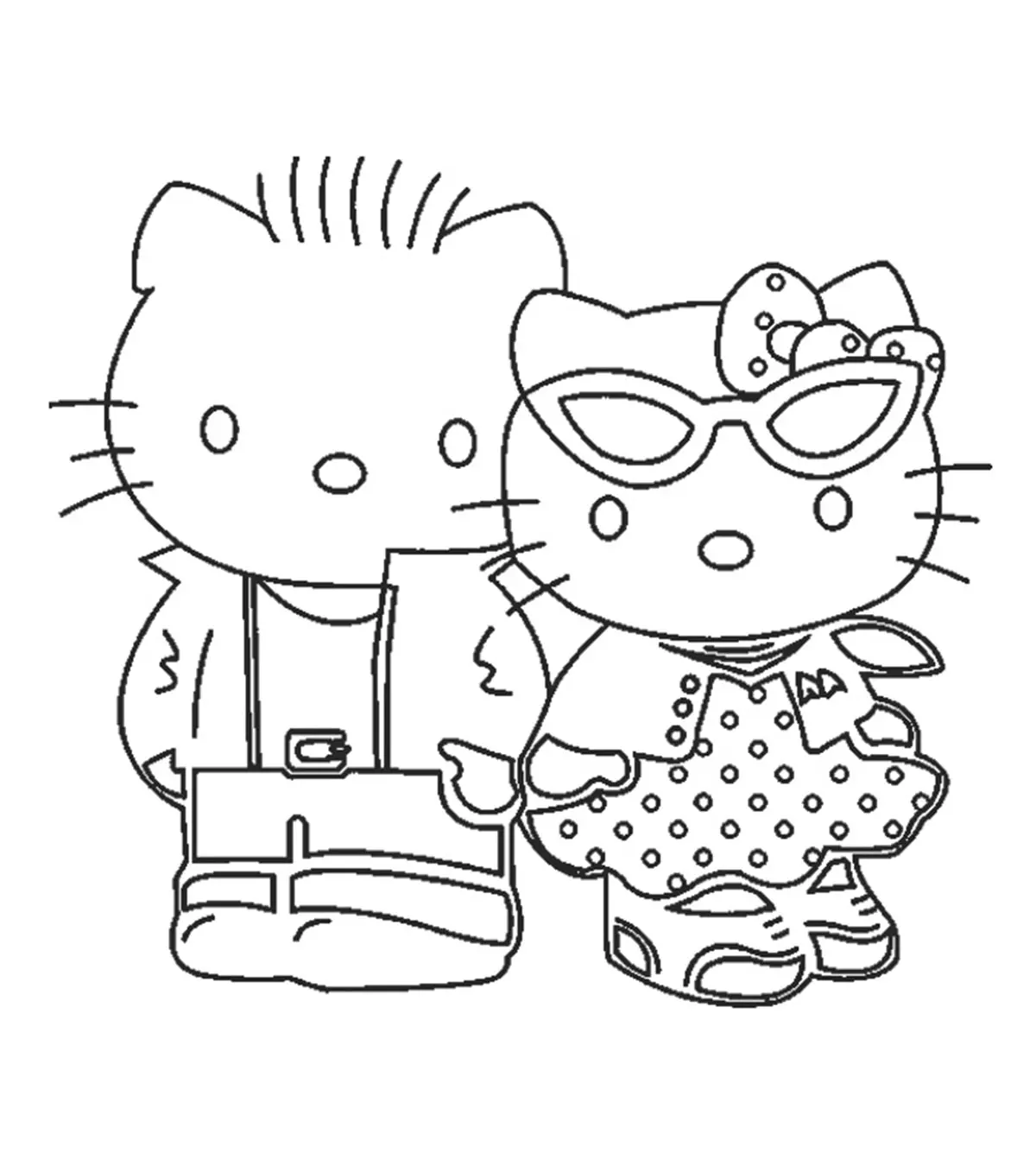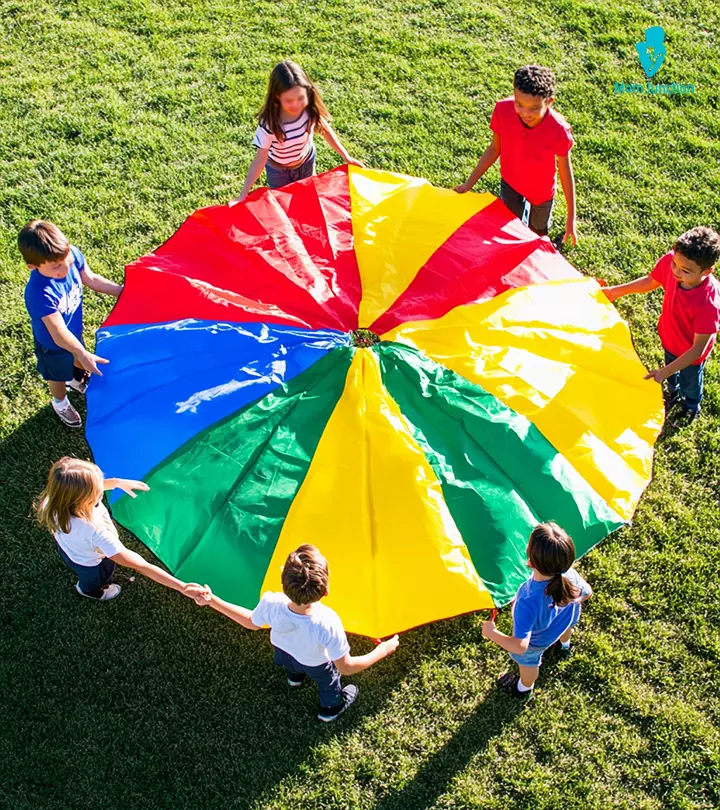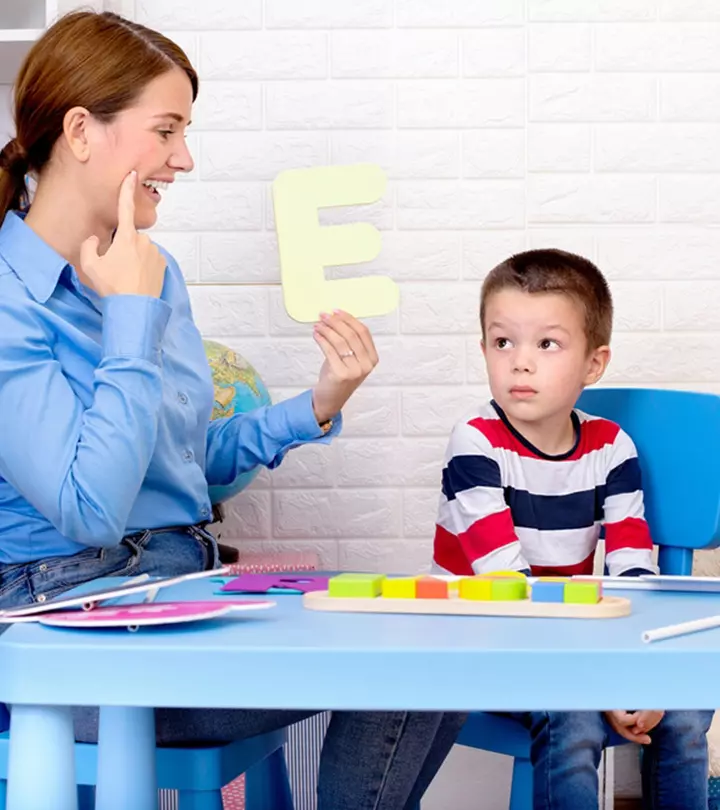
Image: Shutterstock
One of the major indicators of cognitive ability in toddlers is speech development. However, some toddlers might find it challenging to express their feelings, thoughts, and emotions using words. Thus, speech therapists recommend using speech therapy apps for toddlers to encourage them to start conversing and help improve their communication skills (1) (2).

Read this post as we list the best speech therapy apps that you can use to get your little one talking and conversing with you. We have no affiliation with any of the apps mentioned here. They have been selected solely based on user ratings and reviews.
14 Speech Therapy Apps For Toddlers
Speech therapy refers to the techniques used to improve the overall communication skills of toddlers by addressing disorders, such as articulation, apraxia of speech, or stuttering.
Some toddlers might also have trouble putting words together or using language (2). Here are a few speech therapy apps that you may use for your toddler.
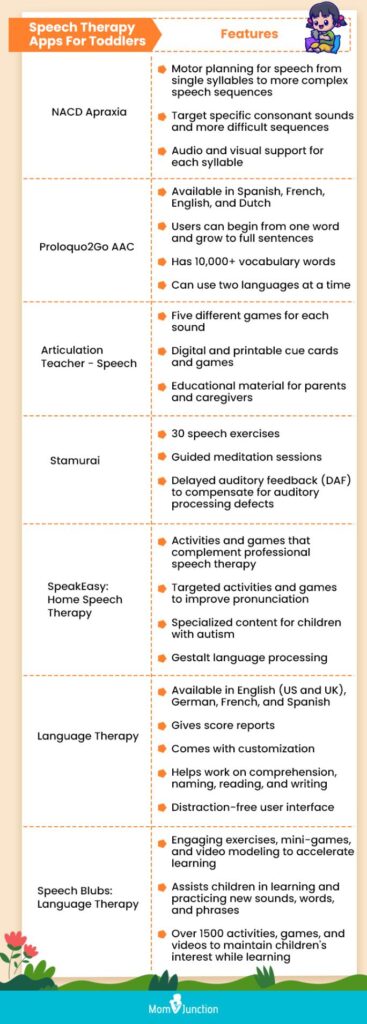
1. NACD Apraxia
This app was developed by the National Association for Child Development team and is useful for children and adults suffering from childhood apraxia of speech/ dyspraxia. It helps users practice motor planning for speech through a progression of levels, starting from single syllables and advancing to more complex speech sequences.
Features
- Ideal for children and adults with apraxia or dyspraxia.
- Beneficial for therapists and parents working with individuals with apraxia.
- It can be used for traditional articulation practice.
- Allows users to target specific consonant sounds, starting from simple syllables to more difficult sequences.
- Includes audio and visual support for each syllable, with options to reset or progress to the next level.
Drawbacks
- The app does not currently offer a way to track data or record the child’s speech productions.
- While it is useful for children with significant Childhood Apraxia of Speech (CAS) or motor speech difficulties, it doesn’t provide exercises beyond the CVC (consonant-vowel-consonant) range. Users looking for various word types, such as VC, CVCV, or CVCVCV, will not find those options in this app.
Rating on Apple App Store: 4.8
Available on: iOS
2. Proloquo2Go AAC
Proloquo2Go AAC is a communication app for non-verbal people who need extra help being understood. The app can be used for children with autism, Down syndrome, cerebral palsy, Angelman syndrome, and other speech difficulties. It is considered one of the best augmentative and alternative communication tools.
Features
- Natural sounding, real-children voices.
- Fully customizable.
- Available in Spanish, French, English, and Dutch.
- Users can begin from one word and grow to full sentences.
- Has 10,000+ vocabulary words
- Can use two languages at a time.
Drawbacks
- Some users find it expensive.
- The user interface and customization may be difficult for some users.
Rating on Apple App Store: 4.8
Available on: iOS
3. Articulation Teacher – Speech
Articulation Teacher – Speech is created by a speech language pathologist. Parents, teachers, or speech therapists can help children work on early sounds. The home-based activities can be a great way to utilize the child’s screen time while also working on their speech skills.
Features
- Five different games for each sound.
- Digital and printable cue cards and games.
- Educational material for parents and caregivers.
Drawbacks
- The app crashes sometimes.
- Some users find it too expensive.
Rating on Google Play Store: 4.4
Rating on Apple App Store: 4.8
4. Stamurai
Stamurai is a speech therapy app targeted at children with stuttering issues. It comes with over 30 exercises and motivational reminders to improve speech. The learning is guided by speech-language pathologists and speech therapists.
Features
- 30 speech exercises, including pausing, pull outs, cancellations, easy onsets, preparatory sets, light articulatory contacts, slowed speech, and diaphragmatic breathing.
- Guided meditaiton sessions.
- Delayed auditory feedback (DAF) to compensate for auditory processing defects.
Drawbacks
- May not cover the uncommon words for people with stammering issues.
- No rating or evaluation system.
- App freezes some times.
Rating on Google Play Store: 4.6
Rating on Apple App Store: 4.7
5. SpeakEasy: Home Speech Therapy
SpeakEasy is a speech therapy app for children aged 0 to 5+, including those with language delays, autism, and learning disabilities. It provides evidence-based activities, games, and resources to support speech and language development at home. SpeakEasy tailors content to your child’s developmental stage, not age, to improve communication and language skills.
Features
- Custom tracks for expressive/receptive language, articulation, attention, and autism.
- Home-based activities and games that complement professional speech therapy.
- Enhances parent-child interaction and communication, with proven results.
- Targeted activities and games to improve pronunciation.
- Specialized content for autistic children and gestalt language processing.
- Tools for tracking words, skills, goal setting, and progress monitoring.
Drawbacks
- The user interface is difficult to navigate and not intuitive.
- Struggles with understanding the flow of lessons and activities.
- Difficulty opening activities to read and access content.
- Profile updates do not reflect changes in activities.
Rating on Google Play Store: 3.2
Rating on Apple App Store: 4.6
6. Language Therapy
It is a 4 in 1 speech therapy app that helps with writing, reading, speaking, listening, and speaking. Research at the University of Cambridge proved that all users who used the app for 20 minutes daily for four weeks showed improvement. It helps improve the symptoms of aphasia for those recovering from stroke and brain injury. It is helpful for people recovering from autism, brain injury, or learning a new language.
Features
- Available in English(US and UK), German, French, and Spanish.
- Gives score reports.
- A customizable app where you can add your own prompts, pictures, words, and sounds.
- Helps work on comprehension, naming, reading, and writing.
- Distraction-free user interface.
Drawbacks
- Smaller text and picture size.
- May need some more writing activities.
Rating on Apple App Store: 4.8
7. Speech Blubs: Language Therapy
Speech Blubs is a speech therapy app that helps children improve their speech by teaching new sounds and words through more than 1500 fun and interactive activities. Developed in collaboration with speech therapists, teachers, and parents, the app features engaging exercises, mini-games, and video modeling to accelerate learning. With its ad-free, kid-safe environment, the app uses positive reinforcement to motivate progress and enhance speech development.
Features
- Assists children in learning and practicing new sounds, words, and phrases.
- Provides over 1500 activities, games, and videos to maintain children’s interest while learning.
- Rewards children with stickers and fun games for their progress, inspired by ABA therapy.
- One sign-in for families with multiple children, making it easy for all to use the app.
- Grants parents access to 350+ articles with tips on speech therapy, homeschooling, and parenting.
- Utilizes video modeling, where children observe peers, enhancing learning through proven scientific techniques.
Drawbacks
- Audio scripts may sound unclear.
- No captions, limiting accessibility for children with hearing difficulties.
Rating on Google Play Store: 4.6
Rating on Apple App Store: 4.5
Parv K. Jessy, a mother and blogger, recounts her experience with the Speech Blubs app and its positive impact on her daughter’s speech development. She remarks, “Recently, I came across the app Speech Blubs, which is focused on improving a child’s speech, especially for late talkers. I tried this app with my daughter and I was surprised how fast she learned new words (i).”
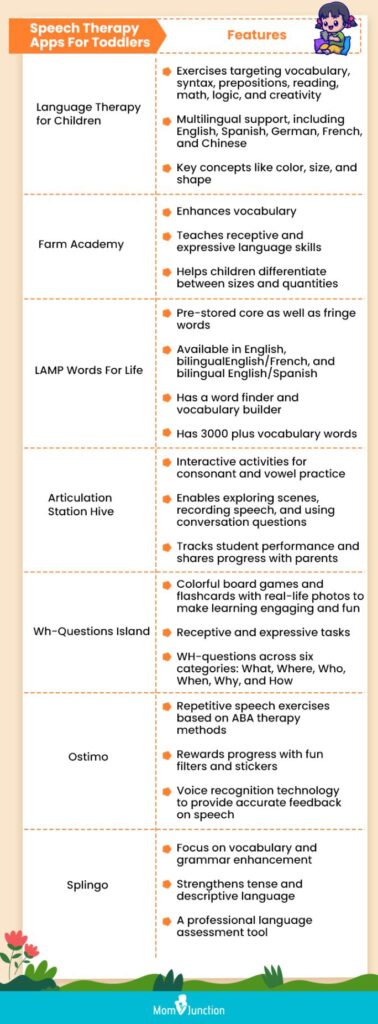
8. Language Therapy For Children
It is an early intervention app for children with autism and language delays. Backed by clinical data and FDA breakthrough device designation, over 1.5 million users have trusted it, providing language and cognitive exercises that can be used for up to 10 years.
Features
- Activities based on ABA techniques and Pivotal Response Treatment.
- Exercises targeting vocabulary, syntax, prepositions, reading, math, logic, and creativity.
- Multilingual support, including English, Spanish, German, French, and Chinese.
- Clinically proven to enhance language scores in children with autism.
- Boosts language and cognitive development through structured, progressive exercises.
- Improves attention, memory, critical thinking, and self-regulation skills.
- Teaches key concepts like color, size, and shape systematically.
- Keeps children engaged with interactive playtime rewards while learning.
Drawbacks
- Some areas on coloring pages are unresponsive, making them difficult for children to use.
- The app’s exit process can cause issues when device pinning is enabled, leading to frequent resets.
Rating on Google Play Store: 4.7
Rating on Apple App Store: 4.4
9. Farm Academy
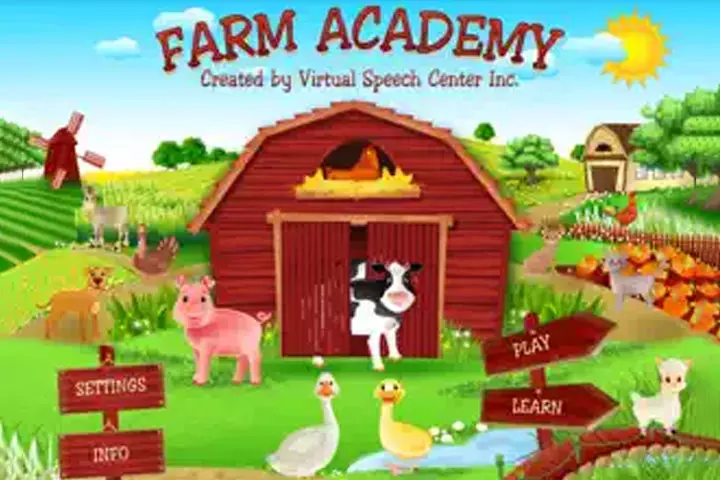
Farm academy is another app created by the Visual Speech Centre and a certified speech and language therapist. This app teaches toddlers the difference between big and small in farm-related terms. It also helps them learn their first vocabulary in learn mode and practice whatever they have learned in practice mode. It is a visually appealing and interactive app that may keep your toddler hooked for a certain time.
Features
- Enhances vocabulary related to farm animals, fruits, vegetables, sizes, and numbers (1-5).
- Teaches receptive and expressive language skills through engaging activities.
- Helps children differentiate between sizes and understand quantity concepts.
- Offers interactive learning and practice modes.
- Supports concept retention with randomization in play mode activities.
- Provides engaging learning with audio, animations, and professional graphics.
Drawbacks
- The app is limited to farm-related themes and does not include other animal habitats
Rating on Apple App Store: 4
Available on: iOS
10. LAMP Words For Life
LAMP Words for Life is an augmentative and alternative communication app that follows neurological and motor learning principles to boost and aid language development in those with autism and other developmental disabilities. It can be used by beginners as well as skilled communicators to further advance their skills.
Features
- Pre-stored core as well as fringe words.
- Available in English, bilingual English/French, and bilingual English/Spanish.
- Has a word finder and vocabulary builder.
- Has 3000 plus vocabulary words.
Drawbacks
- Volume is low
- Vocabulary gets swapped randomly.
- The app lags and freezes at times.
- Word prediction feature lags.
Rating on Apple App Store: 39
Available on: iOS
11. Articulation Station Hive
Articulation Station Hive is a comprehensive speech therapy app developed by Little Bee Speech, designed to help learners of all ages improve speech clarity. It offers 17 interactive activities for consonant and vowel practice, from isolation to conversation levels.
Features
- Video models, picture cues, and letter cues for sound articulation.
- Syllable sliders and spinners for word formation and pronunciation.
- Minimal pairs, flashcards, and matching games for sound practice.
- Rotating phrases and sentences to practice sounds in context.
- Short rhyming stories and longer stories for sound practice.
- Explore scenes, record speech, and use conversation questions.
- Custom words, group sessions, and phonological processes practice.
- Track student performance, share progress with parents, and add notes.
Drawbacks
- Full access to all features may require purchasing extra add-ons or expansions.
- The extensive customization options might make the interface feel complex or difficult for some users to navigate at first.
Rating on Apple App Store: 3.8
Available on: iOS
 Do remember
Do remember12. Wh-Questions Island
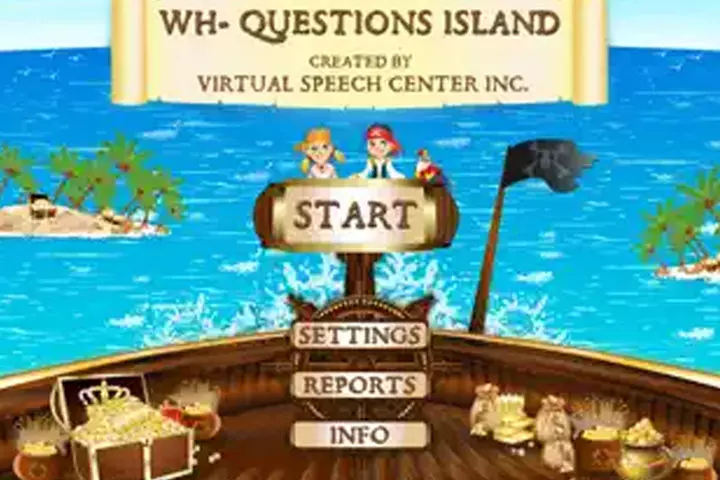
This app was created by the Virtual Speech Centre Inc. It helps children with sentence formation, syntax, and articulation, promoting literacy. Another interesting fact about this app is that the questions used here were developed by a certified speech and language therapist for children. So, your toddlers are sure to learn and improve their language skills.
Features
- Features a colorful board game and flashcards with real-life photos to make learning engaging and fun.
- Includes receptive tasks (choosing the correct answer) and expressive tasks (verbally answering questions).
- Practice answering 480 WH-questions across six categories: What, Where, Who, When, Why, and How.
- Track progress with auto-scoring, detailed reports, and audio recording features.
- Ideal for therapists, teachers, and parents working on language development.
Drawbacks
- No option to turn off multiple-choice answers.
- Question formats lack variety, making them repetitive.
- Limited diversity in avatar choices.
- Reports don’t specify if tasks were receptive or expressive.
Rating on Apple App Store: 3.7
Available on: iOS
13. Ostimo
Otsimo is a speech therapy app that utilizes voice and speech recognition technology to support individuals with speech challenges such as delayed speech, non-verbal autism, apraxia, and articulation issues. The app offers interactive speech games developed with input from speech language pathologists (SLPs). It incorporates machine learning, video modeling, and rewarding features like stickers and filters, making speech practice both fun and effective. Regular updates ensure fresh content to keep users engaged.
Features
- Enhances pronunciation, articulation, and enunciation.
- Offers repetitive speech exercises based on ABA therapy methods.
- Rewards progress with fun filters and stickers to maintain motivation.
- Uses voice recognition technology to provide accurate feedback on speech.
- Includes customizable settings for parents to manage app usage.
- Features over 15 categories to develop various speech skills.
Drawbacks
- Frequent app crashes lead to loss of progress.
- Audio quality could be improved.
- Lack of diversity in the actors featured.
Rating on Google Play Store: 3.3
Rating on Apple App Store: 3.4
 Point to consider
Point to consider14. Splingo
Splingo apps, developed by expert Speech and Language Therapists, are interactive educational games crafted to enhance children’s speech and language skills. With vibrant animations, adjustable gameplay, and motivating reward games, these apps focus on key language areas and offer both US and UK voice options.
Features
- Enhances receptive language skills and the ability to follow directions.
- Expands vocabulary focusing on actions, pronouns, adjectives, and categories.
- Strengthens understanding of past tense and descriptive language.
- Features a professional language assessment tool to assess receptive language skills.
- Offers engaging, interactive learning experiences customized to meet a child’s needs.
Drawbacks
- Children may focus more on reactions than understanding, making it hard to gauge their progress.
- The game moves to the next screen too quickly, before completing tasks.
- Sound issues may occur, affecting the experience.
Rating on Apple App Store: 3
Available on: iOS
Illustration: Best Speech Therapy Apps For Toddlers And Preschoolers

Image: Stable Diffusion/MomJunction Design Team
Frequently Asked Questions
1. What causes speech delay in toddlers?
Various factors can trigger speech disorders in toddlers, including problems in the structure of the oral cavity (such as tongue or palate), developmental delays, brain development problems, and hearing problems or ear infections (3).
2. Can a child overcome speech delay?
According to the American Academy of Pediatrics, mild speech delays could be short-lived and easily manageable with appropriate interventions and support (4). However, do not hesitate to seek professional help if your child shows signs of any delays in speech and language development.
3. How do speech therapy apps for toddlers differ from other educational apps?
Speech therapy for kids offered through apps emphasizes on language development, while other educational apps cover various topics, including math, logic, and science. Moreover, speech therapy apps often include features that allow quick speech development and tools for correcting a child’s pronunciation. These apps are usually built with the advice of experts, and they can provide personalized feedback about your child’s speech development.
4. How much time should my child spend daily using speech therapy apps for toddlers?
Although no conclusive research shows how much time your child should spend on speech therapy apps, a small-scale study states that three sessions lasting 10-15 minutes each daily might positively impact toddlers (5).
5. How can I find reviews or recommendations for speech therapy apps for toddlers?
You can find reviews for speech therapy apps online by doing in-depth research on the web. Some medical research papers also list the best speech therapy apps for toddlers. In addition, on Google PlayStore and App Store, you can get actual customer reviews about these apps.
6. How do speech therapy apps for toddlers address cultural sensitivity and diversity issues?
Speech therapy apps might address cultural sensitivity and diversity issues prioritizing customization features and incorporating multiple languages to assist children in learning in their native languages. These interventions can help families teach children a language they are most comfortable with while instilling their cultural values and beliefs.
7. How can I track my child’s progress when using speech therapy apps for toddlers?
Several speech therapy apps require active parental participation. Moreover, these apps provide a personalized report of your child’s speech abilities. As a result, you can easily track your child’s progress through these apps.
8. What are the best practices for using speech therapy apps?
Establish a consistent routine for using the app exercises in conjunction with other speech therapy techniques. Use app-based exercises on weekends and on days when the child does not seem engrossed by other speech therapy activities. Remember that speech therapy apps for toddlers are meant to supplement, not replace, professional therapists.
Speech therapy apps for toddlers should be introduced when their speech skills are developing and they are in the learning stage. These Android and iPad apps for toddlers help them improve their understanding of words and language and thus better their pronunciation. But remember not to depend on these apps for their speech development completely. According to speech language therapists, it is not the technology that makes the connection but the techniques in the technology that help better the communication skills of your toddler (2).
Infographic: How To Choose A Speech Therapy App For Your Child?
There are many speech therapy apps, as evident from the list above. So how do you choose the best from the best ones? In the infographic below, we’ve listed the essential features of an ideal speech therapy app to help your toddler achieve the desired improvements.
Some thing wrong with infographic shortcode. please verify shortcode syntax
Key Pointers
- Speech is one of the most important cognitive skills for toddlers.
- Speech therapy apps may be recommended by therapists for toddlers who have difficulty speaking.
- These apps help teach speech to children in an engaging manner.
- From articulating phonetic sounds to forming complete words, they cover several skills.
- Apps such as Articulation Station and Outdoor Fun have received positive reviews.
Pogg for Communication is one of the best speech therapy apps for children. Learn how this app can help your child improve their communication skills by teaching them verbs and spellings.
Personal Experience: Source
MomJunction articles include first-hand experiences to provide you with better insights through real-life narratives. Here are the sources of personal accounts referenced in this article.
i. Speech Blubs : proven speech therapy app for kids.https://medium.com/kidsnclicks/speech-blubs-proven-speech-therapy-app-for-kids-aeeccdc084b9
References
- Andri Nugraha et al., The effect of gadget on speech development of toddlers.
https://validate.perfdrive.com/9730847aceed30627ebd520e46ee70b2/?ssa=b64f6851-ffbf-4226-9411-6c4fb6d85394&ssb=71409290316&ssc=https%3A%2F%2Fiopscience.iop.org%2Farticle%2F10.1088%2F1742-6596%2F1175%2F1%2F012203%2Fmeta&ssi=587f2730-cnvj-4f2c-a28f-6ff3da0c20d8&ssk=botmanager_support@radware.com&ssm=54898864937567868103164289178782&ssn=fbc83831027682d3b33fa7f5f66b9d13effc79b4bf28-740e-49be-b8dc72&sso=17edf25b-6f4c69292270764afbf7909d2110ae3ded6b4e50dffec005&ssp=93967459551738983032173895217625244&ssq=27641403573428183156235734285943831765081&ssr=MTI0LjEyMy4xODcuMTQ1&sst=Screaming%20Frog%20SEO%20Spider/21.3&ssu=&ssv=&ssw=&ssx=eyJ1em14IjoiN2Y5MDAwZWQyYzg3OWUtN2ZjNC00ZjBiLTlhMDUtYTlkODNiMmM4NDZjMS0xNzM4OTM1NzM0Mjg5MC0yMmFmNjYxNDBiZTA4ZDFjMTAiLCJfX3V6bWYiOiI3ZjYwMDBlOTBmZmM2Yi05NDc4LTRhYjktYTFmYS02NGM4ZjFiZTA1NzUxNzM4OTM1NzM0Mjg5MC01ZDYzYWViNmQyNzkwZmFlMTAiLCJyZCI6ImlvcC5vcmcifQ== - Toddlers and Technology: Teaching the techniques.
https://leader.pubs.asha.org/doi/full/10.1044/leader.FTR5.16112011.np - Delayed Speech or Language Development.
https://kidshealth.org/en/parents/not-talk.html - Language Delays in Toddlers: Information for Parents.
https://www.healthychildren.org/English/ages-stages/toddler/Pages/language-delay.aspx - Typical Toddlers’ Participation in “Just-in-Time” Programming of Vocabulary for Visual Scene Display Augmentative and Alternative Communication Apps on Mobile Technology: A Descriptive Study.
https://www.ncbi.nlm.nih.gov/pmc/articles/PMC5829791/
Community Experiences
Join the conversation and become a part of our nurturing community! Share your stories, experiences, and insights to connect with fellow parents.
Read full bio of Dr. Joseph Garcia
Read full bio of Harshita Makvana
Read full bio of Rohit Garoo
Read full bio of Apoorva K











